|
Books Should Be Free Loyal Books Free Public Domain Audiobooks & eBook Downloads |
|
|
Books Should Be Free Loyal Books Free Public Domain Audiobooks & eBook Downloads |
|
Books on Politics |
|---|
|
Book type:
Sort by:
View by:
|
By: George Washington Plunkitt (1842-1924) | |
|---|---|
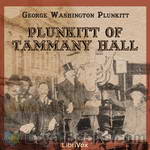 Plunkitt of Tammany Hall
Plunkitt of Tammany Hall
“I seen my opportunities and I took ‘em.”, George Washington Plunkitt of Tamminy Hall. There’s honest graft and dishonest graft according to Plunkitt. Listen to this candid discourse from a 19th century politician, and decide for yourself if things have changed. | |
By: Doris Stevens (1892-1963) | |
|---|---|
 Jailed for Freedom
Jailed for Freedom
A first-hand account of the 1913-1919 campaign of American suffragists, detailing their treatment at the hands of the courts, and the true conditions of their incarceration. | |
By: Susan Glaspell (1876-1948) | |
|---|---|
 Trifles
Trifles
On the surface, this short play is a slice-of-life story about a murder investigation in the rural United States. However, it is also a story about the relationships between men and women, husbands and wives, and the often-overlooked "trifles" which can say so much about a person's life. | |
By: Jane Addams (1860-1935) | |
|---|---|
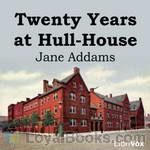 Twenty Years at Hull-House
Twenty Years at Hull-House
Jane Addams was the first American woman to be awarded the Nobel Peace Prize. In a long, complex career, she was a pioneer settlement worker and founder of Hull-House in Chicago, public philosopher (the first American woman in that role), author, and leader in woman suffrage and world peace. She was the most prominent woman of the Progressive Era and helped turn the nation to issues of concern to mothers, such as the needs of children, public health and world peace. She emphasized that women have a special responsibility to clean up their communities and make them better places to live, arguing they needed the vote to be effective... | |
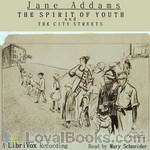 The Spirit of Youth and the City Streets
The Spirit of Youth and the City Streets
Much of the material in the following pages has appeared in current publications. It is here presented in book form in the hope that it may prove of value to those groups of people who in many cities are making a gallant effort to minimize the dangers which surround young people and to provide them with opportunities for recreation. (Introduction by Jane Addams) Jane Addams (1860 – 1935) was the first American woman to be awarded the Nobel Peace Prize. In a long, complex career, she was a pioneer settlement worker and founder of Hull House in Chicago, a public philosopher, a sociologist, an author and a spokesperson for women's suffrage and world peace. | |
By: Henry Adams (1838-1918) | |
|---|---|
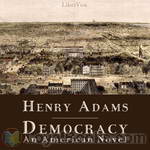 Democracy - An American Novel
Democracy - An American Novel
Not until after his death in 1918 was it revealed that Henry Adams was the anonymous author of Democracy, which had been published to great acclaim in 1880. Though the book avoids dates and the characters are fictitious, the setting is no doubt that of Washington in the 1870s, the age of Presidents Grant and Hayes. The young widow, Madeleine Lee, wealthy and independent, is the protagonist, who leaves her New York for Washington to turn her intelligence to politics and to see what makes her country tick... | |
By: John Maynard Keynes (1883-1946) | |
|---|---|
 Economic Consequences of the Peace
Economic Consequences of the Peace
The Economic Consequences of the Peace (1919) was a best seller throughout the world, published by John Maynard Keynes. Keynes attended the Versailles Conference as a delegate of the British Treasury and argued for a much more generous peace with Germany. The book was critical in establishing a general worldwide opinion that the Versailles Treaty was a brutal and unfair peace towards Germany. It helped to consolidate American public opinion against the treaty and involvement in the League of Nations... | |
By: Friedrich Engels (1820-1895) | |
|---|---|
 Condition of the Working-Class in England in 1844
Condition of the Working-Class in England in 1844
This is Engels' first book (since considered a classic account of England's working class in the industrial age), which argues that workers paid a heavy price for the industrial revolution that swept the country. Engels wrote the piece while staying in Manchester from 1842 to 1844, based on th bohis observations and several contemporary reports conducted over the period. | |
By: Elbert Hubbard | |
|---|---|
 Little Journeys to the Homes of the Great
Little Journeys to the Homes of the Great
LITTLE JOURNEYS TO THE HOMES OF AMERICAN STATESMENBy ELBERT HUBBARDBERT HUBBARD A little more patience, a little more charity for all, a little more devotion, a little more love; with less bowing down to the past, and a silent ignoring of pretended authority; a brave looking forward to the future with more faith in our fellows, and the race will be ripe for a great burst of light and life. --Elbert Hubbard It was not built with the idea of ever becoming a place in history: simply a boys' cabin in the woods... | |
By: Francis Fisher Browne (1843-1913) | |
|---|---|
 Every-day Life of Abraham Lincoln
Every-day Life of Abraham Lincoln
This detailed biography covers the places in Lincoln's life: Indiana, Illinois, Washington. It also traces his various roles as storekeeper, serviceman, state legislator, lawyer, politician, Republican Party leader, and of course President. Along the way we learn about his days of hardship as a beginning lawyer, his love for Anne Rutledge, such myths as "Honest Abe," and his deep concerns over the issue of slavery. The author uses Lincoln's correspondence with others to show his personality traits and opinions about topics of his world. | |
By: Katherine Thurston (1875-1911) | |
|---|---|
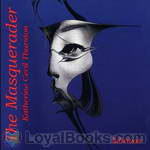 The Masquerader
The Masquerader
The Masquerader is one of two Katherine Cecil Thurston’s books that appeared on the Publisher’s Weekly best-sellers list in 1905. The Masquerader is part mystery, part romance and part political thriller – all tied up in one neat package. Nature has a way of sometimes making two people nearly indistinguishable in appearance. Such is the premise for this book. John Chilcote, a British politician, and John Loder, a man down on his luck meet by accident one night during one of London’s worst fogs... | |
By: National Gambling Impact Study Commission | |
|---|---|
 National Gambling Impact Study Commission Final Report
National Gambling Impact Study Commission Final Report
The National Gambling Impact Study Commission was given the task of conducting a comprehensive legal and factual study on the social and economic implications of gambling in the United States. This report presents the principal findings of that work and recommendations for action. | |
By: Las Cortes y el Pueblo Español | |
|---|---|
 Constitución Española de 1978
Constitución Española de 1978
Constitución vigente en España actualmente, fruto de la Transición a la democracia tras la muerte de Francisco Franco. (Introducción por AGV) | |
By: Charles F. Dole | |
|---|---|
 The Coming People
The Coming People
Dole briefly sketches the history of life, and shows how it has a definite direction - toward the survival of the kind and gentle people. It's a challenging, and quite persuasive argument, and also a much needed one in light of the dog-eat-dog theories out there. Dole shows that in our evolving society, our traditional understanding of "survival of the fittest" needs to be updated. A book that was way ahead of its time, yet so suited to it. Some may argue that - since he was writing The Coming People before the first two world wars - that he was obviously wrong... | |
By: United States Federal Bureau of Investigation | |
|---|---|
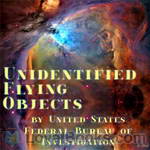 Unidentified Flying Objects
Unidentified Flying Objects
Through the U.S. Freedom of Information Act (FOIA) this series of communications has been de-classified and made public. Most names have been omitted, however much information of the sightings of UFOs in 1947 can be gleaned from these communications which were primarily between the FBI and other U.S. Government and military organizations. | |
By: Jacob A. Riis (1849-1914) | |
|---|---|
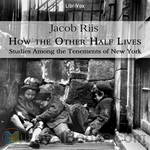 How the Other Half Lives: Studies Among the Tenements of New York
How the Other Half Lives: Studies Among the Tenements of New York
How the Other Half Lives: Studies Among the Tenements of New York (1890) was a pioneering work of photojournalism by Jacob Riis, documenting the squalid living conditions in New York City slums in the 1880s. It served as a basis for future muckraking journalism by exposing the slums to New York City’s upper and middle class. The title of the book is a reference to a phrase of François Rabelais, who wrote in Pantagruel: "one half of the world does not know how the other half lives". | |
By: John Addington Symonds (1840-1893) | |
|---|---|
 A Problem in Modern Ethics
A Problem in Modern Ethics
“Society lies under the spell of ancient terrorism and coagulated errors. Science is either wilfully hypocritical or radically misinformed.” John Addington Symonds struck many an heroic note in this courageous (albeit anonymously circulated) essay. He is a worthy Virgil guiding the reader through the Inferno of suffering which emerging medico-legal definitions of the sexually deviant were prepared to inflict on his century and on the one which followed. Symonds pleads for sane human values in... | |
By: Johanna Brandt (1876-1964) | |
|---|---|
 The Petticoat Commando
The Petticoat Commando
In introducing the English version of this book I venture to bespeak a welcome for it, not only for the light which it throws on some little-known incidents of the South African war, but also because of the keen personal interest of the events recorded. It is more than a history. It is a dramatic picture of the hopes and fears, the devotion and bitterness with which some patriotic women in Pretoria watched and, as far as they could, took part in the war which was slowly drawing to its conclusion on the veld outside... | |
By: Clarence Darrow (1857-1938) | |
|---|---|
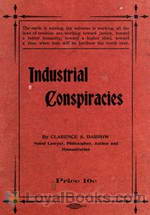 Industrial Conspiracies
Industrial Conspiracies
| |
By: John R. Lynch (1847-1939) | |
|---|---|
 The Facts of Reconstruction
The Facts of Reconstruction
After the American Civil War, John R. Lynch, who had been a slave in Mississippi, began his political career in 1869 by first becoming Justice of the Peace, and then Mississippi State Representative. He was only 26 when he was elected to the US Congress in 1873. There, he continued to be an activist, introducing many bills and arguing on their behalf. Perhaps his greatest effort was in the long debate supporting the Civil Rights Act of 1875 to ban discrimination in public accommodations.In 1884 Lynch was the first African American nominated after a moving speech by Theodore Roosevelt to the position of Temporary Chairman of the Republican National Convention in Chicago, Illinois... | |
By: Walter Lippmann (1889-1974) | |
|---|---|
 Public Opinion
Public Opinion
Public Opinion (1922), by Walter Lippman, is a critical assessment of functional democratic government, especially the irrational, and often self-serving, social perceptions that influence individual behavior, and prevent optimal societal cohesion. (Introduction by author) | |
 Preface to Politics
Preface to Politics
This is the first book in the bibliography of Walter Lippmann, written three years after emerging from Harvard where he studied under the pragmatists Santayana and James. Although the work is a century old, the reader of today may still find in it, with its focus on practical human needs, a refreshing view towards the fundamental purpose (and persistent flaws) of politics, and indeed government itself, just as relevant and meaningful today as when it was written. | |
By: Pierre-Joseph Proudhon (1809-1865) | |
|---|---|
 What is Property? An Inquiry into the Principle of Right and of Government
What is Property? An Inquiry into the Principle of Right and of Government
What Is Property?: or, An Inquiry into the Principle of Right and of Government (French: Qu'est-ce que la propriété ? ou Recherche sur le principe du Droit et du Gouvernment) is an influential work of nonfiction on the concept of property and its relation to anarchist philosophy by the French anarchist and mutualist Pierre-Joseph Proudhon, first published in 1840. In the book, Proudhon most famously declared that “property is theft”. Proudhon believed that the common conception of property conflated two distinct components which, once identified, demonstrated the difference between property used to further tyranny and property used to protect liberty... | |
By: 'Abdu’l-Bahá ‘Abbás (1844-1921) | |
|---|---|
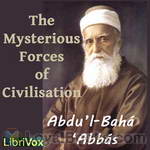 The Mysterious Forces of Civilization
The Mysterious Forces of Civilization
The Mysterious Forces of Civilization (Persian: Risálih-i-Madaníyyih) is a work written before 1875 by ‘Abbás Effendí, known as ‘Abdu’l-Bahá (the Servant of Bahá) (1844-1921). The Persian text was first lithographed in Bombay in 1882 and printed in Cairo in 1911. ‘Abdu’l-Bahá was the eldest son and appointed successor of Bahá’u’lláh, the Founder of the Bahá’í Faith. The original text of this work was written and published anonymously, and the first English translation (by Johanna Dawud) was published in London in 1910 and Chicago in 1918, under the title ‘Mysterious Forces of Civilization’ written by "an Eminent Bahai Philosopher... | |
By: Margaret Sanger (1879-1966) | |
|---|---|
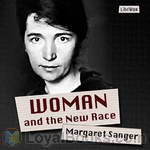 Woman and the New Race
Woman and the New Race
Margaret Sanger was an American sex educator and nurse who became one of the leading birth control activists of her time, having at one point, even served jail time for importing birth control pills, then illegal, into the United States. Woman and the New Race is her treatise on how the control of population size would not only free women from the bondage of forced motherhood, but would elevate all of society. The original fight for birth control was closely tied to the labor movement as well as the Eugenics movement, and her book provides fascinating insight to a mostly-forgotten turbulent battle recently fought in American history. | |
By: Francis Key Howard (1826-1872) | |
|---|---|
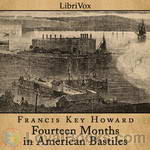 Fourteen Months in American Bastiles
Fourteen Months in American Bastiles
Francis Key Howard recounts in this book his life as a political prisoner of the United States. He points out that he was held captive at the same location where his grandfather was inspired to write the national anthem about the "land of the free," which makes a very stunning contrast. The sufferings that were imposed on him by the Union forces had the effect of solidifying his determination to resist unjust governmental dictates. (Introduction by Katie Riley) | |
By: Hippolyte Dreyfus-Barney (1873-1928) | |
|---|---|
 The Universal Religion: Bahaism - Its Rise and Social Import
The Universal Religion: Bahaism - Its Rise and Social Import
“Bahaism is not a new religion,” writes Hippolyte Dreyfus-Barney, “It is religion renewed… it does not pretend to represent the whole Truth; on the contrary, it recognises Truth in fundamental principles which are the basis of all former dispensations, and which for that very reason form the standpoint of concord too long lost sight of. And it requires people to renounce ancient superstitions, to abandon the dead letter in order to be penetrated by the living and vivifying spirit, then by... | |
By: Imbert de Saint-Amand (1834-1900) | |
|---|---|
 Marie Antoinette and the Downfall of Royalty
Marie Antoinette and the Downfall of Royalty
Paris in 1792 is no longer what it was in 1789. In 1789, the old French society was still brilliant. The past endured beside the present. Neither names nor escutcheons, neither liveries nor places at court, had been suppressed. The aristocracy and the Revolution lived face to face. In 1792, the scene has changed."France was now on the verge of the Reign of Terror (la Terreur), the violent years following the Revolution, and this book chronicles the terrible period of French history which culminated in the proclamation: "Royalty is abolished in France... | |
By: Jefferson Davis (1808-1889) | |
|---|---|
 Rise and Fall of the Confederate Government, Volume 1a
Rise and Fall of the Confederate Government, Volume 1a
The Rise and Fall of the Confederate Government (1881) is written by Jefferson Davis, former President of the Confederate States of America during the American Civil War. Davis wrote the book as a straightforward history of the Confederate States of America and as an apologia for the causes that he believed led to and justified the American Civil War. Davis spared little detail in describing every aspect of the Confederate constitution and government, in addition to which he retold in detail numerous military campaigns... | |
By: Maria W. Stewart (1803-1879) | |
|---|---|
 Meditations from the Pen
Meditations from the Pen
Maria W. Stewart was America's first black woman political writer. Between 1831 and 1833, she gave four speeches on the topics of slavery and women's rights. Meditations From The Pen of Mrs. Maria W. Stewart—published in 1879 shortly before her death—is a collection of those speeches as well as her memoir, some meditations and prayers. They are political, poetical and sermon all at the same time; but in the mileu in which she lectured, they were a critically important part of the abolitionist movement years before the contributions of others such as Frederick Douglass and Sojourner Truth... | |
By: Margaret Fuller (1810-1850) | |
|---|---|
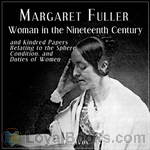 Woman in the Nineteenth Century and Kindred Papers Relating to the Sphere, Condition, and Duties of Women
Woman in the Nineteenth Century and Kindred Papers Relating to the Sphere, Condition, and Duties of Women
Margaret Fuller (1810-1850) was an American feminist, writer, and intellectual associated with the Transcendentalist movement. Her book Woman in the Nineteenth Century (1845) is considered the first major feminist work in the United States. Her life was short but full. She became the first editor of the transcendentalist journal The Dial in 1840, before joining the staff of the New York Tribune under Horace Greeley in 1844. By the time she was in her 30s, Fuller had earned a reputation as the best-read person in New England, male or female, and became the first woman allowed to use the library at Harvard College... | |
By: Edward M. House (1858-1938) | |
|---|---|
 Philip Dru: Administrator
Philip Dru: Administrator
Philip Dru: Administrator: a Story of Tomorrow, 1920-1935 is a futuristic political novel published anonymously in 1912 by Edward Mandell House, an American diplomat, politician and presidential foreign policy advisor. His book's hero leads the democratic western U.S. in a civil war against the plutocratic East, and becomes the dictator of America. Dru as dictator imposes a series of reforms that resemble the Bull Moose platform of 1912 and then vanishes. | |
By: John T. Morse (1840-1937) | |
|---|---|
 John Quincy Adams
John Quincy Adams
This biography contains three main sections. the first covers Adams's early years and his time as a diplomat--both in America and overseas. The second tells of his two careers as Secretary of State and President. The last involves his years in the House of Representatives. | |
By: Tommaso Campanella (1568-1639) | |
|---|---|
 City of the Sun
City of the Sun
A dialogue between a Grandmaster of the Knights Hospitallers and a Genoese Sea-captain, about the latter's voyage to a utopian city. | |
By: Justin McCarthy (1830-1912) | |
|---|---|
 History of the Four Georges and of William IV, Volume 3
History of the Four Georges and of William IV, Volume 3
In Volume III of this series on the Hanoverian Kings, Justin McCarthy is joined by his son, Justin Hartly McCarthy, a liberal Irish MP like his father. Together they bring to life, poor stubborn George III, the outrageous radical, John Wilkes, the rebellious American Colonies, great-hearted Charles James Fox, the Gordon Riots which set London ablaze, Edmund Burke, Britain's problematic Indian policy, and the brave, enigmatic Younger Pitt, who faced national fears of the spread of revolution across the Channel from France and then confronted the imminent threat of invasion by the armies of Napoleon. | |
By: Various | |
|---|---|
 Shield
Shield
This is not merely a book about the Russian Jews. It is a marvellous revelation of the Russian soul. It shows not only that the overwhelming majority of the Russian intellectuals, including nearly all of her brilliant literary geniuses, are opposed to the persecution of the Jews or any other race, but that they have a capacity for sympathy and understanding of humanity unequalled in any other land. I do not know of any book where the genius and heart of Russia is better displayed. Not only her leading litterateurs but also her leading statesmen and economists are represented—and all of them speak as with a single voice. | |
By: Eugene V. Debs (1855-1926) | |
|---|---|
 Labor and Freedom
Labor and Freedom
"While there is a lower class I am in it; While there is a criminal class I am of it; While there is a soul in prison I am not free." ( Eugene V. Debs) This collection of essays charts the thought and character of Eugene V. Debs. Debs was an influential early American labor leader, a founding member of the Industrial Workers of the World (IWW), and a Presidential candidate for the Socialist Party of America. In these essays, Debs employs his characteristically fiery rhetoric in a spirited defense of worker's rights, organized labor, women's suffrage, class solidarity, and the principles of economic socialism. | |
By: Samuel Merwin and Henry Kitchell Webster (1874-1936 and 1875-1932) | |
|---|---|
 The Short Line War
The Short Line War
"The Short Line War is a story that will appeal more particularly to the sterner sex, and we take it that the hyphenated name, Merwin-Webster, stands for two healthy-minded young men who have put their heads together and who have mapped out this story of a railroad war, in which politics form a considerable part. Jim Weeks is the central figure in the fight, and we like him so much better for knowing of the romance in his early life. He was a man 'without much instinct or imagination; he took everything seriously and literally, he could not understand a whim'--therefore a very foolish little woman came into his life only to leave it desolate... | |
By: Unknown | |
|---|---|
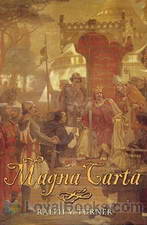 Magna Carta
Magna Carta
The original document is in Latin so this can only be a fairly rough approximation of the actual content. The text used is the first version in the Gutenberg collection. – Magna Carta is the most significant early influence on the long historical process that has led to the rule of constitutional law today. Magna Carta was originally created because of disagreements between the Pope, King John and his English barons over the rights of the King. Magna Carta required the king to renounce certain rights and respect certain legal procedures and to accept that the will of the king could be bound by law. | |
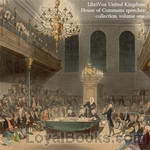 United Kingdom House of Commons Speeches Collection
United Kingdom House of Commons Speeches Collection
This collection comprises recordings of 17 historic speeches given to the UK House of Commons between 1628 and 1956. Readings are of speeches origninally given by parliamentarians including Oliver Cromwell, Edmund Burke, William Wilberforce, William Gladstone, Keir Hardie, Winston Churchill and Aneurin Bevan. | |
By: The Venerable Bede (673-735) | |
|---|---|
 Ecclesiastical History of England
Ecclesiastical History of England
Bede's Ecclesiastical History of England is a work in Latin by Bede on the history of the Christian Churches in England, and of England generally; its main focus is on the conflict between Roman and Celtic Christianity. It is considered to be one of the most important original references on Anglo-Saxon history. It is believed to have been completed in 731, when Bede was approximately 59 years old. Divided into five books, it covers the history of England, ecclesiastical and political, from the time of Julius Caesar to the date of its completion (731)... | |
By: Unknown | |
|---|---|
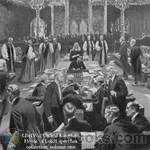 United Kingdom House of Lords Speeches Collection
United Kingdom House of Lords Speeches Collection
This collection comprises recordings of seven historic speeches given to the UK House of Lords between 1641 and 1945. Readings are of speeches origninally given by the 1st Earl of Strafford (Thomas Wentworth), the 1st Earl of Chatham (William Pitt the Elder), the 6th Baron Byron (the poet Lord Byron), the 1st Duke of Wellington (Arthur Wellesley), the 3rd Earl of Lucan (George Lord Bingham) and the 3rd Earl Russell (the philosopher Bertrand Russell). | |
By: Charles Dickens (1812-1870) | |
|---|---|
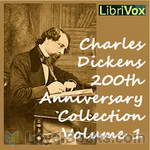 Charles Dickens 200th Anniversary Collection Vol. 1
Charles Dickens 200th Anniversary Collection Vol. 1
The Charles Dickens 200th Anniversary Collection comprises short works - fiction, essays, poetry, letters, magazine articles and speeches - and each volume will be a pot pourri of all genres and periods of his writing. This first volume is released on Dickens' 200th birthday, February 7th 2012. Further volumes will follow during the anniversary year.Volume 1 includes short stories including, amongst others, The Holly Tree, the first part of Holiday Romance and three pieces from Mugby Junction.Some... | |
By: Calista McCabe Courtenay | |
|---|---|
 George Washington
George Washington
In this biography for young people, Calista McCabe Courtenay takes the reader from George Washington the surveyor to his early military career, first as a colonel in the Virgina militia and then as a member of General Braddock'a staff during the French and Indian War. He later commanded the Virginia forces before joining the First Continental Congress. Much of the book is devoted to his campaigns during the American Revolution. At the end, we see him as President for two terms. | |
By: Upton Sinclair (1878-1968) | |
|---|---|
 The Machine
The Machine
Upton Sinclair is best known for his novel The Jungle, an expose of the meatpacking industry. He was also a playwright whose works for the stage reflected the same progressive viewpoints found in his other writing. In The Machine, published as part of Sinclair's 1912 collection Plays of Protest, Socialist activists show a rich man's daughter the truth about the society in which she has been raised. | |
By: Friedrich Engels (1820-1895) | |
|---|---|
 Socialism: Utopian and Scientific
Socialism: Utopian and Scientific
The main idea of "Socialism: Utopian and Scientific" (1880) was distinguishing scientific socialism and utopian socialism. Engels begins by chronicaling the thought of utopian socialists, starting with Saint-Simon. He then proceeds to Fourier and Robert Owen. In chapter two, he summarizes dialectics, and then chronicles the thought from the ancient Greeks to Hegel. Chapter three summarizes dialectics in relation to economic and social struggles, essentially echoing the words of Marx. | |
By: Camille Flammarion (1842-1925) | |
|---|---|
 Omega: The Last Days of the World
Omega: The Last Days of the World
Omega: The Last Days of the World is a science fiction novel by astronomer Camille Flammarion. On 25th century Earth, a comet is on a path to collide with the Earth ending it all. Astronomers predict different scenarios as to how they will all die depending on the chemical composition of the comet. Omega probes the philosophical and political consequences that arise as the human race faces the end of the world. | |
By: Various | |
|---|---|
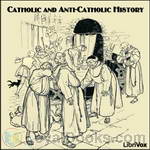 Catholic and Anti-Catholic History
Catholic and Anti-Catholic History
G.K. Chesterton and James Walsh join Hilaire Belloc in an energetic rollout of the means by which history becomes propaganda, to the damage, not only to truth, but to the human soul. | |
By: H. G. Wells (1866-1946) | |
|---|---|
 Anticipations
Anticipations
Wells considered this book one of his most important, a natural follow-up to such works as his Man of the Year Million and The Time Machine. His goal was to get people to think and act in new ways. The book starts with a look at how humans get along socially and how they carry out their business ventures. It then discusses how these elements influence others, such as politics, the world of work, and education. H. G. tried to make clear how the current social order was disintegrating without preparing another to take its place. He then traced the roots of democracy, which in its present state he saw as unworkable. Instead, he proposed a new republic. He also critiqued modern warfare. | |
By: Miriam Michelson (1870-1942) | |
|---|---|
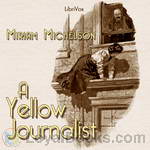 A Yellow Journalist
A Yellow Journalist
Rhoda Massey is a young, sharp reporter for a daily newspaper in San Francisco. After proving herself an astute and fearless investigator on her first big story, she spends most of her waking hours running down leads and doing (almost) anything it takes to produce headline grabbing tales and to be the first one to do so. She must compete with her male colleagues where she works but also with those from other newspapers. Rhoda discovers it useful to be pretty and small in stature (great for eavesdropping from tight and unusual locations) but it's her shrewd mind and her nose for news that propel her to pursue stories in dangerous places and, sometimes, from dangerous characters... | |
By: Elizabeth Cady Stanton (1815-1902) | |
|---|---|
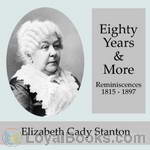 Eighty Years and More; Reminiscences 1815-1897
Eighty Years and More; Reminiscences 1815-1897
Elizabeth Cady Stanton was one of the premier movers in the original women’s rights movement, along with Susan B. Anthony, her best friend for over 50 years. While Elizabeth initially stayed home with her husband and many babies and wrote the speeches, Susan went on the road to bring the message of the women’s rights movement to an often hostile public. When black men were given the vote in 1870, Susan and Elizabeth led the women’s rights establishment of the time to withhold support for a bill that would extend to black men the rights still denied for women of all colors... | |
By: Plato (424-348 BC) | |
|---|---|
 Laws
Laws
Νόμοι (Laws) is Plato's final dialogue written after his attempt to advise the tyrant Dionysius II of Syracuse. The dialogue takes place between: an Athenian Stranger (Socrates? A god in human form?); the quiet Lacedaemonian Megillus; and the Cretan Cleinias. The Stranger asks whether humans live to be more effective at waging war or if there is something more important a legislator should seek to achieve. During their pilgrimage Cleinias discloses his role in the establishment of a new colony... | |
By: Henry Morgenthau (1856-1946) | |
|---|---|
 Ambassador Morgenthau's Story
Ambassador Morgenthau's Story
Ambassador Morgenthau’s memoirs of his years in the service of the United States in Constantinople, (today Istanbul), are an important primary historical resource for the study of the dissolution of the Ottoman Empire and the Armenian Genocide. During this genocide, approximately 1,500,000 Armenians living in Anatolia were murdered in an attempt to rid Turkey of its non-Turkish populations. Mr. Morgenthau left Turkey a frustrated man, having done all that he was able through diplomatic circles to halt the murders, to no avail... | |
By: Theodore Roosevelt (1858-1919) | |
|---|---|
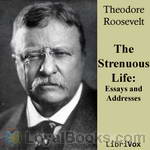 Strenuous Life: Essays and Addresses of Theodore Roosevelt, The
Strenuous Life: Essays and Addresses of Theodore Roosevelt, The
This book is a collection of Theodore Roosevelt’s published commentaries and public addresses on the general theme of the requirements for individual and collective success in the personal, civic, political, and social arenas. (Introduction by Bob Neufeld) | |
By: Jacob A. Riis (1849-1914) | |
|---|---|
 Neighbors – Life Stories of the Other Half
Neighbors – Life Stories of the Other Half
These stories have come to me from many sources—some from my own experience, others from settlement workers, still others from the records of organized charity, that are never dry, as some think, but alive with vital human interest and with the faithful striving to help the brother so that it counts. They have this in common, that they are true. For good reasons, names and places are changed, but they all happened as told here. I could not have invented them had I tried; I should not have tried if I could... | |
By: Mark Twain | |
|---|---|
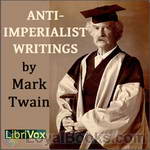 Anti-imperialist writings
Anti-imperialist writings
This audiobook is a collection of Mark Twain's anti-imperialist writings (newspaper articles, interviews, speeches, letters, essays and pamphlets). | |
By: Ella Middleton Tybout (1871-1952) | |
|---|---|
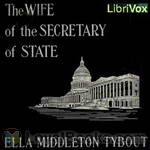 The Wife of the Secretary of State
The Wife of the Secretary of State
In this political thriller set at the turn of the 20th century, several lives, both of Washington insiders and those on the periphery, intersect over the issue of some stolen diplomatic papers. And what hidden secrets bind Mrs. Redmond, the wife of the Secretary of State, to the unscrupulous Count Valdmir, the Russian ambassador? Politics, power, and intrigue combine in this novel, first published in 1905. | |
By: John Relly Beard (1800-1876) | |
|---|---|
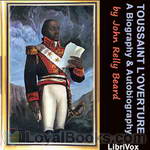 Toussaint L’Ouverture: A Biography and Autobiography
Toussaint L’Ouverture: A Biography and Autobiography
François-Dominique Toussaint L’Ouverture (1743-1803) rose to fame in 1791 during the Haitian struggle for independence. In this revolt, he led thousands of slaves on the island of Hispañola to fight against the colonial European powers of France, Spain and England. The former slaves ultimately established the independent state of Haiti and expelled the Europeans. L’Ouverture eventually became the governor and Commander-In-Chief of Haiti before recognizing and submitting to French rule in 1801... | |
By: Various (1833-1884) | |
|---|---|
 John Stuart Mill; His Life and Works
John Stuart Mill; His Life and Works
This biography is actually a series of essays by prominent personalities of the time that shed light on John Stuart Mill's life and areas of endeavor. Those areas include his experiences in India House, his moral character, certain botanical explorations, how effective he was as a critic, studies in morals and the law, and discoveries concerning political economy. They also explore ideas concerning his influence on institutions of higher learning, accomplishments as a politician, and fame as a philosopher. | |
By: Marcus Tullius Cicero (106-43 BC) | |
|---|---|
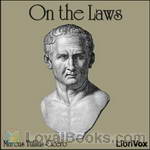 On the Laws
On the Laws
De Legibus (On the Laws) is a philosophical dialogue between: Cicero's friend Titus Pomponius Atticus; Cicero's brother Quintus; and Cicero himself. The dialogue is written in the style of Plato who was greatly revered by Cicero. De Legibus forms a continuation of Cicero's own work De re Publica (On the Commonwealth or On the Republic) and is also a response to Plato's work Νόμοι (Laws). It is unknown how many books the work originally contained but several complete books have been lost. Cicero's... | |